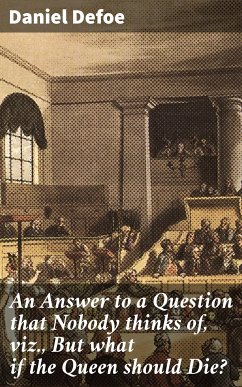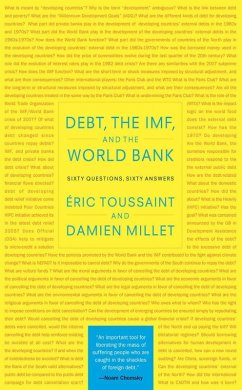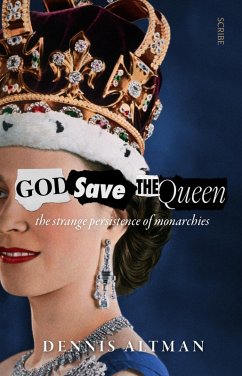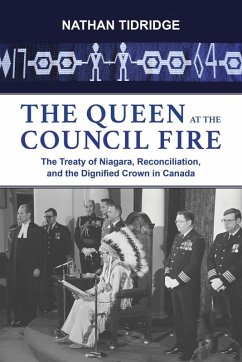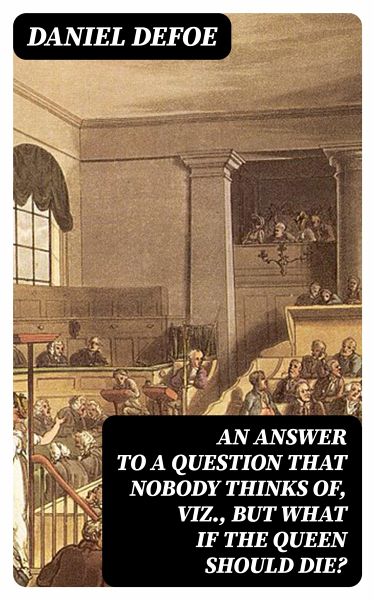
An Answer to a Question that Nobody thinks of, viz., But what if the Queen should Die? (eBook, ePUB)

PAYBACK Punkte
0 °P sammeln!
In "An Answer to a Question that Nobody thinks of, viz., But what if the Queen should Die?", Daniel Defoe engages readers with a satirical yet profound examination of royal succession amidst the political unrest of early 18th-century England. Written in a clear, conversational prose style, the book employs a mix of humor and serious reflection, positioning a seemingly trivial question within the broader context of national stability and governance. Defoe artfully navigates the fears and anxieties surrounding the potential death of Queen Anne, illustrating the fragility of monarchical power and...
In "An Answer to a Question that Nobody thinks of, viz., But what if the Queen should Die?", Daniel Defoe engages readers with a satirical yet profound examination of royal succession amidst the political unrest of early 18th-century England. Written in a clear, conversational prose style, the book employs a mix of humor and serious reflection, positioning a seemingly trivial question within the broader context of national stability and governance. Defoe artfully navigates the fears and anxieties surrounding the potential death of Queen Anne, illustrating the fragility of monarchical power and the public's role in imagining its consequences for society at large. Daniel Defoe, a prolific writer known for his insightful social commentary, was deeply aware of the political turbulence of his era, including the War of the Spanish Succession and the shifting alliances that marked Queen Anne's reign. His diverse career as a merchant, journalist, and political pamphleteer informed his understanding of public sentiment, prompting him to address poignant issues like the monarchy's uncertain future and the people's apprehensions regarding state stability. This book is highly recommended for readers interested in political philosophy, satire, and early modern history. Defoe's unique blend of wit and analysis not only entertains but also provokes critical thought about power, governance, and the psyche of a nation facing potential upheaval.
Dieser Download kann aus rechtlichen Gründen nur mit Rechnungsadresse in A, B, BG, CY, CZ, D, DK, EW, E, FIN, F, GR, H, IRL, I, LT, L, LR, M, NL, PL, P, R, S, SLO, SK ausgeliefert werden.





